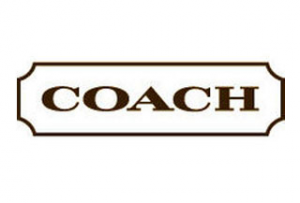 Coach (COH) is one of those cyclical retail that investors love for two reasons. Firstly, it’s one barometer of economic conditions; with many fashion products costing over$200, the company’s revenue is tied to consumer confidence, so the company’s revenue can be used as a crude predictor of consumer behavior in the near future. It’s also tied to the fortunes of several other companies in other sectors, so its performance can be used to reset expectations for several other companies.
Coach (COH) is one of those cyclical retail that investors love for two reasons. Firstly, it’s one barometer of economic conditions; with many fashion products costing over$200, the company’s revenue is tied to consumer confidence, so the company’s revenue can be used as a crude predictor of consumer behavior in the near future. It’s also tied to the fortunes of several other companies in other sectors, so its performance can be used to reset expectations for several other companies.
So how did they do? Good and bad, but the bad dominated investors’ minds, with the stock down nearly 10% only two hours after the start of trading. This is because, although the EPS of 89 cents matched expectations, revenue disappointed, and this top line was much more important to investors this time than the bottom line.
What’s Important, Revenue or Earnings?
The banal answer would be “both”, and it’d also be wrong. While revenue and earnings are both significant to any company’s value, sometimes one is more important than the other. For a high tech growth stock like Pandora (P ) or Facebook(FB), earnings have been secondary to revenue numbers for those in the name. The idea is that earnings will come later–first the companies need to grow, and fast.
Coach isn’t a high-tech growth stock, but in the fashion world, revenue is sometimes more important than earnings for two reasons: firstly, falling revenue indicates that the brand’s trendiness is on the decline and, secondly, the highly competitive fashion industry rarely has much room to cut expenses without also directly cutting future revenue. And this is why Coach is tanking: its revenue disappointed at $1.22 billion, for a growth rate of 6% from a year ago. Analysts were expecting $1.24 billion.
A Strong Reaction in a Strong Market
It’s a 1.6% miss, but the market’s reaction was dramatic: the stock is down, investors are bailing. This is because the high-end retail market is hot. In addition to Hudsons Bay’s recent deal to buy Saks (SKS) for $2.9 billion, expectations for luxury apparel sales, especially in the U.S., are swinging bullish as consumer confidence grows in the high end market.
If Coach is failing to attract that spend, it might suggest that the brand itself is problematic. This is particularly true when you compare the brand with Michael Kors(KORS), which has reported strong numbers in the past few quarters. Comparing both stocks side by side is particularly telling:
Here we see an almost direct price divergence over 2013 as investors begin to realize what most fashionistas probably already knew: Kors is hot, Coach is not.
